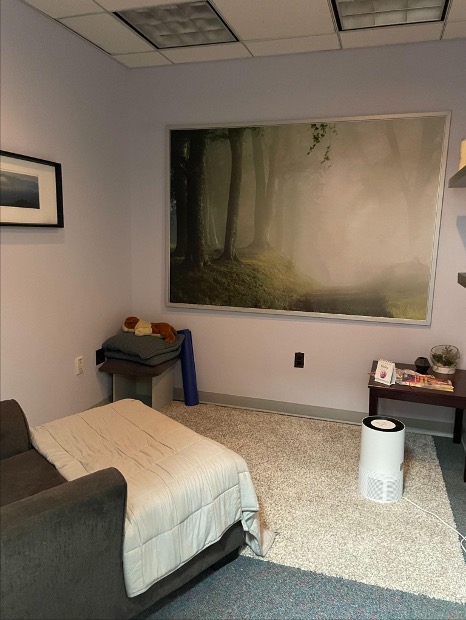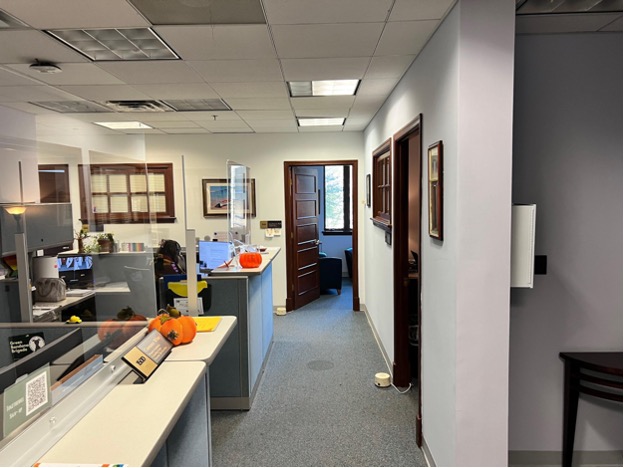The following does not represent the views of Loyola University Maryland, The Greyhound, or Loyola University’s Department of Communication.
SZA, Kendrick Lamar, Billie Eilish, Lainey Wilson, Coldplay. All of your favorite artists are going on tour! You immediately put your name down onto the pre-sale list and crowd around your laptop and phone the day the tickets release. You wait countless minutes in the queue, preparing for your fight for tickets and a spot in the venue, only to find the ticket prices listed at astronomical prices. $500 for nosebleeds? And that’s not including ticket fees, transportation, food, the concert outfit, merchandise. You begin to wonder, are concert tickets becoming inaccessible for college students?
Ticketmaster, SeatGeek, and StubHub have been emerging for the past few years, ever since live music came back from COVID-19. Sales have increased anywhere from 21%-66%, in comparison to a 97% decline in April of 2020. Now that events are being hosted normally again, many college students continuously resort to concerts with friends and significant others as a way to make plans and have a night out. With more popular artists releasing tour dates, these sites have been booming with friends and couples all around the world, giving them even more of a reason to secure their ticket.
That’s exactly what Katie Pollock, ‘28, has planned for this year.
“This spring, I am seeing Tyler, The Creator with my roommate and over the summer I will travel to see The Weeknd with one of my childhood best friends. With The Weeknd, I was lucky enough to be one of the first thousand in line to secure a ticket. As for Tyler, The Creator, tickets were out of control. Resale was around $300, which made me question if I could afford to go,” Pollock said.
Looking back at the Eras Tour, people were looking at tickets on websites that cost thousands of dollars. Ticket prices ranged up to $200,000, which is enough to pay for a four-year college, a car, or even money used towards a house.
The new year has proved that there will still be soaring pricing, no matter the artist. For example, The Weeknd has been declared the most popular musician on the planet, with over 100 million listeners on Spotify, where the prices are listed as low as $119 and as high as $3,418. However, other artists that do not reach The Weeknd’s title of best artist, such as Morgan Wallen and Olivia Rodrigo, that are still considered top artists, have extreme prices, too. Prices start at $225 and some tickets reach all the way up to $3,648.
The average student at Loyola University Maryland is paying $33,312 per year. With that price, it can make it difficult for students to afford a concert ticket.
JP Krahel, an accounting professor at Loyola University Maryland discusses buying concert tickets as a college student.
“There’s a concept in finance called “cost of capital.” How much does your money cost? Say, for instance, you’ve got student loans at 6% interest. Spending $200 on concert tickets would mean you didn’t use that money to settle your debts, so you end up paying about a $12 “surcharge” on those concert tickets in extra interest costs over the next year,” Krahel said.
“It’s important to understand that debts carry their own costs, and by prioritizing other things, you’re letting your cost of debt grow,” Krahel said.
So why are these concert tickets priced so high? Well– there are a few reasons.
The cost of production and touring is one of the main reasons prices have gone up. Artists, mainly the popular and bigger performers, require many expensive items to make their concert and the experience the best they can give to their fans. This includes costly lighting, sound systems, elaborate stage setups, and security. While these necessities contribute to a memorable experience, they also add a large financial burden to the overall cost of the concert. For college students who often live on tight budgets, the cost of tickets can be overwhelming. A concert ticket that costs hundreds of dollars can easily reduce a student’s limited funds, which are already being used for tuition, meal plans, textbooks, and other expenses.
With these expensive prices, college students are often left making a choice between a concert or financial priorities for college. This typically leads to the concert experience left off the list.
As more artists emerge, such as Sabrina Carpenter and Chappell Roan, more people want to see them live, which only increases the demand for tickets.
Lynn Elkes, an economics professor at Loyola University Maryland, highlights how high demand for concert tickets can impact the price.
“There are a fixed number of tickets for each venue and for each individual concert. If the demand for those tickets has increased, and the supply does not, then by definition, the price will rise,” Elkes said.
Venue fees and ticketing service charges also play into the increase in admission pricing. If you have purchased a ticket online, you have seen the random fees added to your already highly priced concert ticket. Tate McRae has $25.23 worth of fees per ticket, and Beyonce’s ticket came with a $31.54 additional fee. These fees exist to cover the costs affiliated with processing and managing event tickets: paying the staff, venue maintenance, technology, and any operational expense needed to put on a show. Essentially, these fees help balance the costs of providing the service of selling and managing the tickets. These fees may not seem like a lot, but the more tickets purchased, the more the fee increases, which only makes you spend more.
Kerry Tan, an economics professor at Loyola University Maryland, explains the economics perspective towards paying for admission.
“The revenue generated by concerts is a significant source of income to the band members and the people they employ to put on their shows. Economists assume that companies are profit-maximizers so concert tickets will reflect the willingness and ability for consumers to pay for the experience,” Tan said.
“Unfortunately, that may result in certain groups, like college students, [being unable to attend] really popular concerts or music festivals,” Tan said.
Concerts are such a unique experience. They can be exhilarating, emotional, and unforgettable. The atmosphere– everyone dancing, singing, and cheering– and the connection you feel to the artist is something you don’t experience unless you attend the live performance. It’s almost as if it is an escape from reality where you can create endless memories and stories to look back on. As much as college students love to attend concerts, the events are becoming extremely costly, especially with the numerous college payments.
“Me thinking $200 to see The Weeknd is cheap is kind of crazy, considering my dad showed me a concert ticket to see Fleetwood Mac in Madison Square Garden for less than $10,” Pollock said.
This change in concert ticket prices point to a sharp contrast between past and present affordability, especially for college students.
“College students, especially those who rely on student loans, grants and work study to afford college tuition, are certainly priced out of this entertainment option. I personally think this is short-sighted of the concert promoters as they are cutting off a future audience,” Elkes said.
If we want to ensure that the power of live music remains accessible to everyone, concert promoters must reconsider their appeal and find a way to make these remarkable experiences available to all, not just those with deep pockets.
The Greyhound is committed to publishing a diversity of opinions. We’d like to hear what you think. Our email: greyhoundops@gmail.com.













































































































